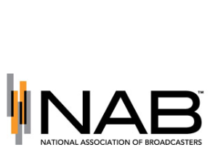
The Federal Communications Commission’s Notice of Proposed Rulemaking on FM digital audio broadcasting has garnered extensive commentary from key industry members in its final comments. Overall, there is a general level of support for the proposed changes, with new attention on superpowered FM stations, low-power FM interference, and implications for aviation and broadband services.
In their additions, NAB and iHeartMedia both emphasize that the proposed changes in digital power levels won’t cause harmful interference to existing stations. iHeartMedia specifically points to engineering analyses and field studies that support power increases without additional FCC authorization. Moreover, NAB argues that listener complaints are a better gauge of real-world interference than mathematical models, a view also endorsed by the Educational Media Foundation.
Both NAB and iHeartMedia advocate for allowing superpowered FM stations to use the updated digital power formula. NAB dismisses concerns from REC Networks, suggesting that such stations should operate under the new formula without special restrictions. iHeartMedia concurs, emphasizing that these rule changes would reduce administrative burdens and improve in-band on-channel (IBOC) operations.
NAB has refuted concerns raised by Charter Communications that increased digital power could affect cable broadband systems. On the aviation front, the Aerospace Industries Association and the General Aviation Manufacturers Association are actively collaborating with NAB and Xperi to address concerns about interference with aeronautical radionavigation spectrum. Meanwhile, navigation systems provider Garmin remains unconvinced that the ARNS would not be adversely affected by a raise in digital FM power.
Xperi, iHeartMedia, and NAB are all in agreement that the FCC should permit asymmetric sideband operations. This would enable broadcasters to extend their digital reach without requiring special authorization from the FCC.
In summary, the industry is largely in favor of the FCC’s proposed changes, seeing them as beneficial for both broadcasters and the public. Ongoing collaborative efforts aim to resolve any remaining concerns, particularly in the aviation sector.









